"Radical Acceptance by Tara Brach helped me to sit with my fear instead of resist it and watch it grow. It helped me find the strength to let the fear move through me and eventually release itself. The book will be my companion through the next inevitable round of uncertainty that comes."
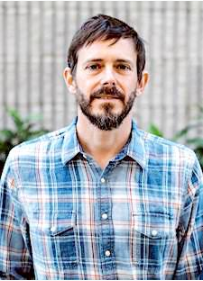
We delve into books for so many different reasons: guidance, knowledge, curiosity and oftentimes to lose ourselves in a captivating tale that can take us to the farthest stretches of our imagination. Esalen News invites our faculty to share what’s on their nightstand and why.
As lead singer/songwriter for Toad the Wet Sprocket, Glen Phillips appreciates the creative process and recognizes the passion that goes behind creating compelling works.
He has released numerous solo and collaborative records, actively tours and leads vibrant community singing circles in Santa Barbara, Calif. Eager to appear with Emily Sailers (of the Indigo Girls) for Courting the Muse | Songwriting From the Heart, at Esalen August 23-28, Glen shares his latest read with Esalen News.
Esalen News: What was the last book you read?
Glen Phillips: I’m currently reading Radical Acceptance: Embracing Your Life with the Heart of a Buddha by Tara Brach. It is some much-needed medicine at the moment.
What drew you to the book?
I’ve been struggling with fear and anxiety through COVID-19. My doomsday internal playlist centers around societal collapse, so I’ve been benefiting from good practices and inputs. I’ve read most of this book before and found it to be a source of comfort and strength.
What inspires you about the book?
Tara’s writing manages to explore Buddhist philosophy and practice in a wonderfully universal context. She has a clear and kind writing style, supported with numerous anecdotes from the lives of her clients and patients. Her delivery of mindfulness work sticks in my head as a simple, sensical practice instead of something theoretical or beyond my grasp. For someone who hasn’t studied mindfulness or Buddhist philosophy, this book is a great starting place.
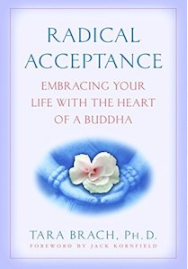
What are several things that really stood out?
The book focuses on what Tara calls “the trance of unworthiness,” something I’ve wrestled with for most of my life. Even in the last month, I re-entered the book when I was in a state of spiritual and emotional collapse, and it has been a great companion through my emergence into a period of greater balance. The book helped me to sit with my fear instead of resist it and watch it grow. It helped me find the strength to let the fear move through me and eventually release itself. It will be my companion through the next inevitable round of uncertainty that comes. The chapters that stand out: The Pause: Resting Under the Bodhi Tree is particularly good during moments of sheltering in place; Coming Home to our Body helped me get reacquainted with my vipassana and yoga practices; Opening our Heart in the Face of Fear, specifically leaning into fear, assisted me in moving to a level of peace I haven’t felt for weeks.
What other things have you learned?
I’ve come and gone with a mindfulness practice for many years. These times have been a great reminder of how vital it is that I keep these practices up in order to provide care and resources for those around me. When I’m stuck in the “trance,” distracting myself and constantly avoiding what’s really happening in the moment, the scariest possible thing is to stop and just feel into what’s really going on.
As soon as I get brave enough to stop—or, sometimes, break down enough to stop running away—I can burn through the fear and feel the expansiveness on the other side. I’m grateful that no matter how many times I forget I can always return. I’m grateful that there are so many teachers available to teach me this material in so many subtle different ways.
How would you sum up the book in a word or two?
Mindfulness for beginners.
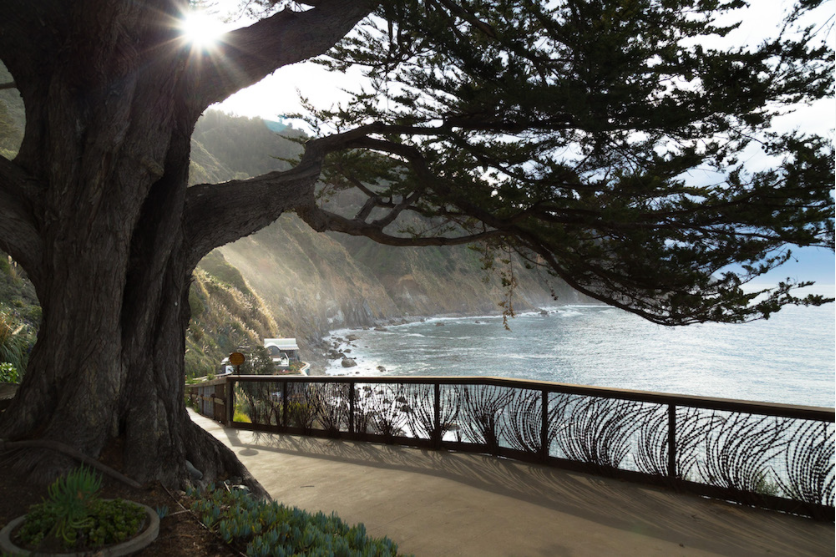

“Remembering to be as self compassionate as I can and praying to the divine that we're all a part of.”
–Aaron
“Prayer, reading, meditation, walking.”
–Karen
“Erratically — which is an ongoing stream of practice to find peace.”
–Charles
“Try on a daily basis to be kind to myself and to realize that making mistakes is a part of the human condition. Learning from our mistakes is a journey. But it starts with compassion and caring. First for oneself.”
–Steve
“Physically: aerobic exercise, volleyball, ice hockey, cycling, sailing. Emotionally: unfortunately I have to work to ‘not care’ about people or situations which may end painfully. Along the lines of ‘attachment is the source of suffering’, so best to avoid it or limit its scope. Sad though because it could also be the source of great joy. Is it worth the risk?“
–Rainer
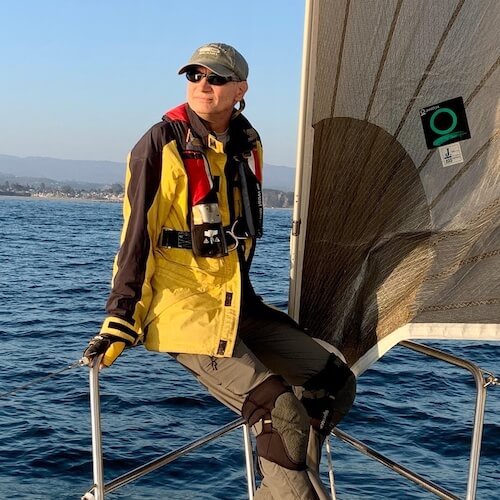

“It's time for my heart to be nurtured on one level yet contained on another. To go easy on me and to allow my feelings to be validated, not judged harshly. On the other hand, to let the heart rule with equanimity and not lead the mind and body around like a master.”
–Suzanne
“I spend time thinking of everything I am grateful for, and I try to develop my ability to express compassion for myself and others without reservation. I take time to do the things I need to do to keep myself healthy and happy. This includes taking experiential workshops, fostering relationships, and participating within groups which have a similar interest to become a more compassionate and fulfilled being.“
–Peter
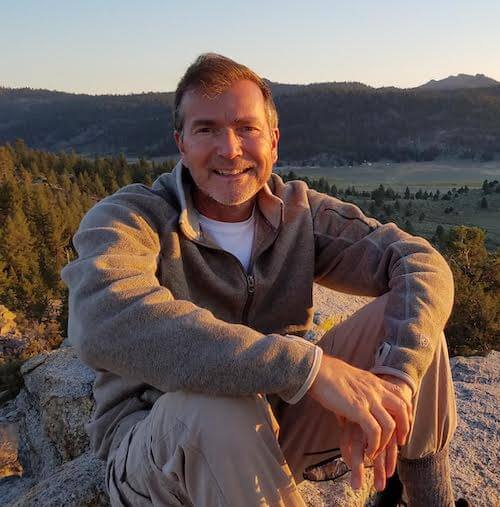
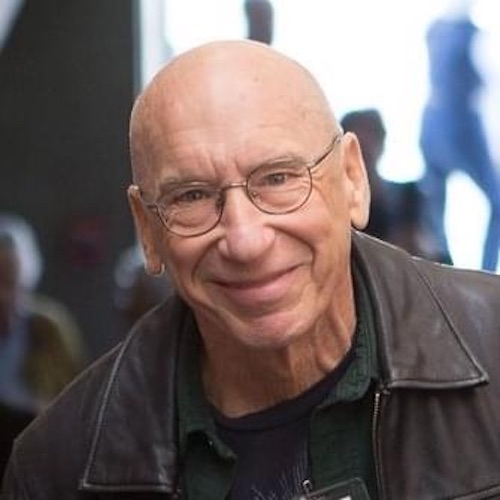
“Self-forgiveness for my own judgments. And oh yeah, coming to Esalen.”
–David B.
“Hmm, this is a tough one! I guess I take care of my heart through fostering relationships with people I feel connected to. Spending quality time with them (whether we're on the phone, through messages/letters, on Zoom, or in-person). Being there for them, listening to them, sharing what's going on with me, my struggles and my successes... like we do in the Esalen weekly Friends of Esalen Zoom sessions!”
–Lori

“I remind myself in many ways of the fact that " Love is all there is!" LOVE is the prize and this one precious life is the stage we get to learn our lessons. I get out into nature, hike, camp, river kayak, fly fish, garden, I create, I dance (not enough!), and I remain grateful for each day, each breath, each moment. Being in the moment, awake, and remembering the gift of life and my feeling of gratitude for all of creation.”
–Steven
“My physical heart by limiting stress and eating a heart-healthy diet. My emotional heart by staying in love with the world and by knowing that all disappointment and loss will pass.“
–David Z.
Today, September 29, is World Heart Day. Strike up a conversation with your own heart and as you feel comfortable, encourage others to do the same. As part of our own transformations and self-care, we sometimes ask for others to illuminate and enliven our hearts or speak our love language.
What if we could do this for ourselves too, even if just for today… or to start a heart practice, forever?
"Radical Acceptance by Tara Brach helped me to sit with my fear instead of resist it and watch it grow. It helped me find the strength to let the fear move through me and eventually release itself. The book will be my companion through the next inevitable round of uncertainty that comes."

We delve into books for so many different reasons: guidance, knowledge, curiosity and oftentimes to lose ourselves in a captivating tale that can take us to the farthest stretches of our imagination. Esalen News invites our faculty to share what’s on their nightstand and why.
As lead singer/songwriter for Toad the Wet Sprocket, Glen Phillips appreciates the creative process and recognizes the passion that goes behind creating compelling works.
He has released numerous solo and collaborative records, actively tours and leads vibrant community singing circles in Santa Barbara, Calif. Eager to appear with Emily Sailers (of the Indigo Girls) for Courting the Muse | Songwriting From the Heart, at Esalen August 23-28, Glen shares his latest read with Esalen News.
Esalen News: What was the last book you read?
Glen Phillips: I’m currently reading Radical Acceptance: Embracing Your Life with the Heart of a Buddha by Tara Brach. It is some much-needed medicine at the moment.
What drew you to the book?
I’ve been struggling with fear and anxiety through COVID-19. My doomsday internal playlist centers around societal collapse, so I’ve been benefiting from good practices and inputs. I’ve read most of this book before and found it to be a source of comfort and strength.
What inspires you about the book?
Tara’s writing manages to explore Buddhist philosophy and practice in a wonderfully universal context. She has a clear and kind writing style, supported with numerous anecdotes from the lives of her clients and patients. Her delivery of mindfulness work sticks in my head as a simple, sensical practice instead of something theoretical or beyond my grasp. For someone who hasn’t studied mindfulness or Buddhist philosophy, this book is a great starting place.

What are several things that really stood out?
The book focuses on what Tara calls “the trance of unworthiness,” something I’ve wrestled with for most of my life. Even in the last month, I re-entered the book when I was in a state of spiritual and emotional collapse, and it has been a great companion through my emergence into a period of greater balance. The book helped me to sit with my fear instead of resist it and watch it grow. It helped me find the strength to let the fear move through me and eventually release itself. It will be my companion through the next inevitable round of uncertainty that comes. The chapters that stand out: The Pause: Resting Under the Bodhi Tree is particularly good during moments of sheltering in place; Coming Home to our Body helped me get reacquainted with my vipassana and yoga practices; Opening our Heart in the Face of Fear, specifically leaning into fear, assisted me in moving to a level of peace I haven’t felt for weeks.
What other things have you learned?
I’ve come and gone with a mindfulness practice for many years. These times have been a great reminder of how vital it is that I keep these practices up in order to provide care and resources for those around me. When I’m stuck in the “trance,” distracting myself and constantly avoiding what’s really happening in the moment, the scariest possible thing is to stop and just feel into what’s really going on.
As soon as I get brave enough to stop—or, sometimes, break down enough to stop running away—I can burn through the fear and feel the expansiveness on the other side. I’m grateful that no matter how many times I forget I can always return. I’m grateful that there are so many teachers available to teach me this material in so many subtle different ways.
How would you sum up the book in a word or two?
Mindfulness for beginners.


“Remembering to be as self compassionate as I can and praying to the divine that we're all a part of.”
–Aaron
“Prayer, reading, meditation, walking.”
–Karen
“Erratically — which is an ongoing stream of practice to find peace.”
–Charles
“Try on a daily basis to be kind to myself and to realize that making mistakes is a part of the human condition. Learning from our mistakes is a journey. But it starts with compassion and caring. First for oneself.”
–Steve
“Physically: aerobic exercise, volleyball, ice hockey, cycling, sailing. Emotionally: unfortunately I have to work to ‘not care’ about people or situations which may end painfully. Along the lines of ‘attachment is the source of suffering’, so best to avoid it or limit its scope. Sad though because it could also be the source of great joy. Is it worth the risk?“
–Rainer


“It's time for my heart to be nurtured on one level yet contained on another. To go easy on me and to allow my feelings to be validated, not judged harshly. On the other hand, to let the heart rule with equanimity and not lead the mind and body around like a master.”
–Suzanne
“I spend time thinking of everything I am grateful for, and I try to develop my ability to express compassion for myself and others without reservation. I take time to do the things I need to do to keep myself healthy and happy. This includes taking experiential workshops, fostering relationships, and participating within groups which have a similar interest to become a more compassionate and fulfilled being.“
–Peter


“Self-forgiveness for my own judgments. And oh yeah, coming to Esalen.”
–David B.
“Hmm, this is a tough one! I guess I take care of my heart through fostering relationships with people I feel connected to. Spending quality time with them (whether we're on the phone, through messages/letters, on Zoom, or in-person). Being there for them, listening to them, sharing what's going on with me, my struggles and my successes... like we do in the Esalen weekly Friends of Esalen Zoom sessions!”
–Lori

“I remind myself in many ways of the fact that " Love is all there is!" LOVE is the prize and this one precious life is the stage we get to learn our lessons. I get out into nature, hike, camp, river kayak, fly fish, garden, I create, I dance (not enough!), and I remain grateful for each day, each breath, each moment. Being in the moment, awake, and remembering the gift of life and my feeling of gratitude for all of creation.”
–Steven
“My physical heart by limiting stress and eating a heart-healthy diet. My emotional heart by staying in love with the world and by knowing that all disappointment and loss will pass.“
–David Z.
Today, September 29, is World Heart Day. Strike up a conversation with your own heart and as you feel comfortable, encourage others to do the same. As part of our own transformations and self-care, we sometimes ask for others to illuminate and enliven our hearts or speak our love language.
What if we could do this for ourselves too, even if just for today… or to start a heart practice, forever?
"Radical Acceptance by Tara Brach helped me to sit with my fear instead of resist it and watch it grow. It helped me find the strength to let the fear move through me and eventually release itself. The book will be my companion through the next inevitable round of uncertainty that comes."

We delve into books for so many different reasons: guidance, knowledge, curiosity and oftentimes to lose ourselves in a captivating tale that can take us to the farthest stretches of our imagination. Esalen News invites our faculty to share what’s on their nightstand and why.
As lead singer/songwriter for Toad the Wet Sprocket, Glen Phillips appreciates the creative process and recognizes the passion that goes behind creating compelling works.
He has released numerous solo and collaborative records, actively tours and leads vibrant community singing circles in Santa Barbara, Calif. Eager to appear with Emily Sailers (of the Indigo Girls) for Courting the Muse | Songwriting From the Heart, at Esalen August 23-28, Glen shares his latest read with Esalen News.
Esalen News: What was the last book you read?
Glen Phillips: I’m currently reading Radical Acceptance: Embracing Your Life with the Heart of a Buddha by Tara Brach. It is some much-needed medicine at the moment.
What drew you to the book?
I’ve been struggling with fear and anxiety through COVID-19. My doomsday internal playlist centers around societal collapse, so I’ve been benefiting from good practices and inputs. I’ve read most of this book before and found it to be a source of comfort and strength.
What inspires you about the book?
Tara’s writing manages to explore Buddhist philosophy and practice in a wonderfully universal context. She has a clear and kind writing style, supported with numerous anecdotes from the lives of her clients and patients. Her delivery of mindfulness work sticks in my head as a simple, sensical practice instead of something theoretical or beyond my grasp. For someone who hasn’t studied mindfulness or Buddhist philosophy, this book is a great starting place.

What are several things that really stood out?
The book focuses on what Tara calls “the trance of unworthiness,” something I’ve wrestled with for most of my life. Even in the last month, I re-entered the book when I was in a state of spiritual and emotional collapse, and it has been a great companion through my emergence into a period of greater balance. The book helped me to sit with my fear instead of resist it and watch it grow. It helped me find the strength to let the fear move through me and eventually release itself. It will be my companion through the next inevitable round of uncertainty that comes. The chapters that stand out: The Pause: Resting Under the Bodhi Tree is particularly good during moments of sheltering in place; Coming Home to our Body helped me get reacquainted with my vipassana and yoga practices; Opening our Heart in the Face of Fear, specifically leaning into fear, assisted me in moving to a level of peace I haven’t felt for weeks.
What other things have you learned?
I’ve come and gone with a mindfulness practice for many years. These times have been a great reminder of how vital it is that I keep these practices up in order to provide care and resources for those around me. When I’m stuck in the “trance,” distracting myself and constantly avoiding what’s really happening in the moment, the scariest possible thing is to stop and just feel into what’s really going on.
As soon as I get brave enough to stop—or, sometimes, break down enough to stop running away—I can burn through the fear and feel the expansiveness on the other side. I’m grateful that no matter how many times I forget I can always return. I’m grateful that there are so many teachers available to teach me this material in so many subtle different ways.
How would you sum up the book in a word or two?
Mindfulness for beginners.


“Remembering to be as self compassionate as I can and praying to the divine that we're all a part of.”
–Aaron
“Prayer, reading, meditation, walking.”
–Karen
“Erratically — which is an ongoing stream of practice to find peace.”
–Charles
“Try on a daily basis to be kind to myself and to realize that making mistakes is a part of the human condition. Learning from our mistakes is a journey. But it starts with compassion and caring. First for oneself.”
–Steve
“Physically: aerobic exercise, volleyball, ice hockey, cycling, sailing. Emotionally: unfortunately I have to work to ‘not care’ about people or situations which may end painfully. Along the lines of ‘attachment is the source of suffering’, so best to avoid it or limit its scope. Sad though because it could also be the source of great joy. Is it worth the risk?“
–Rainer


“It's time for my heart to be nurtured on one level yet contained on another. To go easy on me and to allow my feelings to be validated, not judged harshly. On the other hand, to let the heart rule with equanimity and not lead the mind and body around like a master.”
–Suzanne
“I spend time thinking of everything I am grateful for, and I try to develop my ability to express compassion for myself and others without reservation. I take time to do the things I need to do to keep myself healthy and happy. This includes taking experiential workshops, fostering relationships, and participating within groups which have a similar interest to become a more compassionate and fulfilled being.“
–Peter


“Self-forgiveness for my own judgments. And oh yeah, coming to Esalen.”
–David B.
“Hmm, this is a tough one! I guess I take care of my heart through fostering relationships with people I feel connected to. Spending quality time with them (whether we're on the phone, through messages/letters, on Zoom, or in-person). Being there for them, listening to them, sharing what's going on with me, my struggles and my successes... like we do in the Esalen weekly Friends of Esalen Zoom sessions!”
–Lori

“I remind myself in many ways of the fact that " Love is all there is!" LOVE is the prize and this one precious life is the stage we get to learn our lessons. I get out into nature, hike, camp, river kayak, fly fish, garden, I create, I dance (not enough!), and I remain grateful for each day, each breath, each moment. Being in the moment, awake, and remembering the gift of life and my feeling of gratitude for all of creation.”
–Steven
“My physical heart by limiting stress and eating a heart-healthy diet. My emotional heart by staying in love with the world and by knowing that all disappointment and loss will pass.“
–David Z.
Today, September 29, is World Heart Day. Strike up a conversation with your own heart and as you feel comfortable, encourage others to do the same. As part of our own transformations and self-care, we sometimes ask for others to illuminate and enliven our hearts or speak our love language.
What if we could do this for ourselves too, even if just for today… or to start a heart practice, forever?